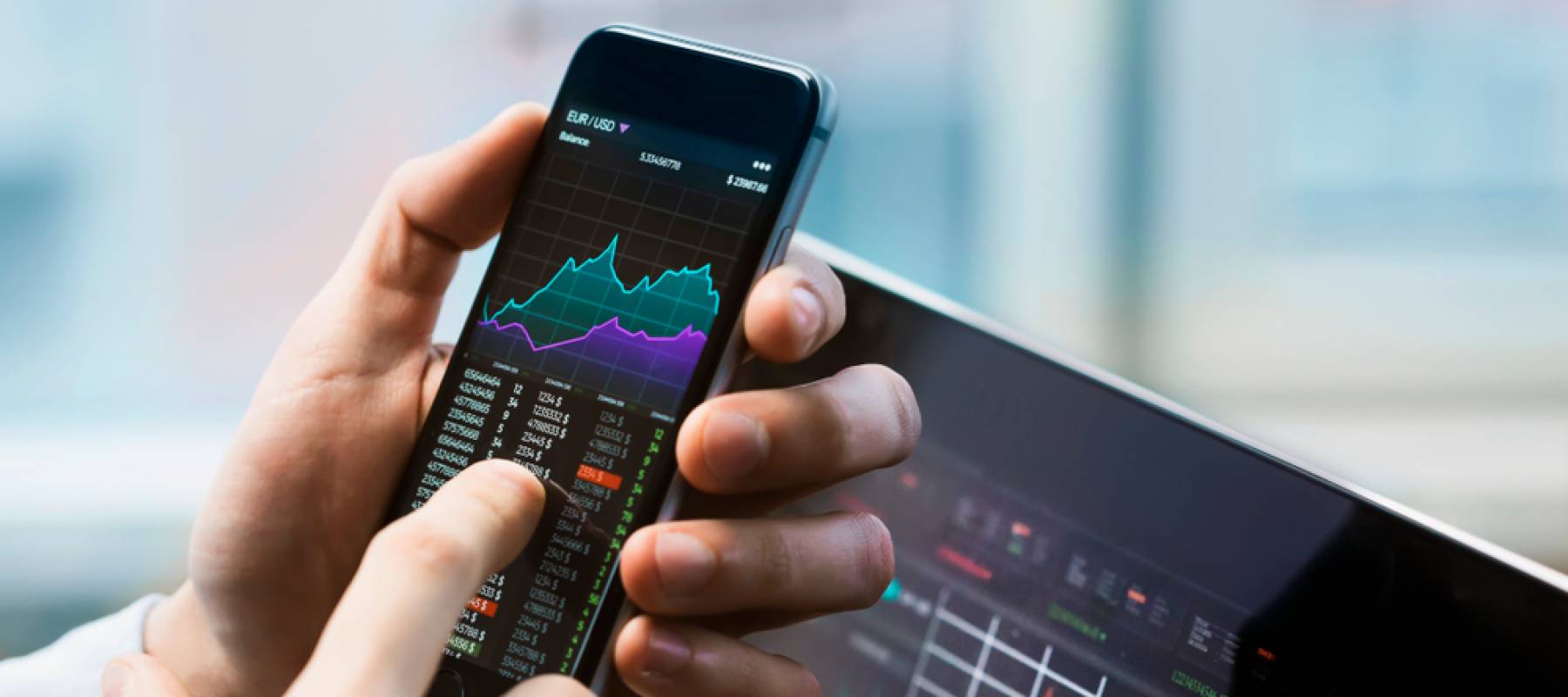What is a low-risk investment?
A low-risk investment is a place where you can earn reliable returns without putting your capital at risk, meaning there is a small chance of you losing your money. These range from cash investments that earn a fixed amount of interest, to investments in low volatility stock market securities.
Low-risk investments can make you feel safer because their value doesn’t usually drop, unlike high-risk investments, which might offer higher returns but come with a lot of uncertainty. Which one is best for you depends on your risk tolerance and purpose of the investment.
Why get a low-risk investment?
Low-risk investments deliver a consistent return without putting your capital at risk. In the middle of a crisis, like the current COVID-19 pandemic, low-risk investments provide a source of investment income and protect your capital from market swings.
Types of low-risk investments
There are a number of low-risk investments, but here are the most common ones you can check out for your own financial plan.
High-interest savings accounts
Cash is king, especially in uncertain markets. As a general rule of thumb, you should keep 3 to 6 months of essential expenses on hand in case of emergencies. There’s no better place to keep your emergency fund than a high-interest savings account. A high-interest savings account will keep your cash liquid, so you can easily withdraw any amount you need, when you need it. At the same time, you’ll earn interest on the balance to help it grow.
In times of economic uncertainty, having a large cash cushion can provide financial security in case of income loss or unexpected expenses. Earning a steady rate of return
Our recommendation: EQ Bank Savings Plus Account
The EQ Bank Savings Plus Account offers one of the highest interest rates on savings in Canada. A 2.50%* everyday interest, the EQ Bank offers a great no-risk return while keeping your cash liquid and easy to access. It’s no surprise EQ Bank has been a favorite of ours for years.
Key Features
- Return: 2.50%* everyday interest rate
- Risk Level: Low
- No minimum balance
- No everyday banking fees
Our Take
The EQ Bank Savings Plus Account is the perfect place to park your cash if you want a competitive rate of return on a no-risk investment, while keeping your money accessible for your everyday spending needs. If you have some extra cash put aside and you want it to grow for you, without having to lock it away in case should you need it during this difficult crisis, this is the optimal choice for you.
Sign Up for the EQ Bank Savings Plus Account.
- Interest is calculated daily on the total closing balance and paid monthly. Rates are per annum and subject to change without notice.
GIC
A Guaranteed Investment Certificate (GIC) provides a fixed rate of return on your money over a fixed term. They typically offer higher interest rates than savings accounts, but your money must remain in the GIC for the duration of its term, which ranges from 90 days to 5 years. The interest you earn on your money will be paid annually, or at the end of the GIC term. If you withdraw your money before the term you selected is up, you forfeit the high interest. Like a savings account, your capital is not at risk.
GICs are awesome low-risk investment vehicles if you’re comfortable locking up your cash for a few months or years. If you know you won’t need your cash for the duration of the GIC term, this is a great way to get a better return on your investment than you would in a savings account.
Money Market Funds
Money market funds have fallen out of favor with investors as new investment vehicles with better returns and lower fees have become available. Money market funds are mutual funds that invest only in cash or cash-like securities, so your money stays liquid.
These funds have a low risk of losing value and are usually offered by financial institutions, such as banks.
However, these funds have high management fees that can drastically eat into the returns. As a result, most money market funds actually provide lower returns than a high-interest savings account, so you’re better off keeping your cash elsewhere.
Annuities
An annuity is a type of retirement insurance that will pay you a fixed amount each year for a fixed term, or even the rest of your life. It’s a form of protection against outliving your savings. You purchase the annuity for a premium ranging from $50,000 upwards, which will grow with interest and dividends while you receive a fixed amount every month, quarter, or year for the term.
Because annuities provide a guaranteed source of income, the only real risk of this investment vehicle is not living long enough to receive your investment back in payments. While an attractive low-risk investment vehicle, annuities are typically only purchased in retirement and therefore not a tool for younger investors to consider. However, if you’re a few decades from retirement, now is a great time to build up a cash nest egg to purchase an annuity later!
Low Volatility Fund
A low volatility fund is an investment vehicle that puts your cash in low-risk securities in the stock market. While this investment vehicle has more risk than a savings account or GIC, it still has considerably less than a traditional index fund.
To invest in a low volatility fund, look for a low-volatility ETF from a provider like BMO, iShares by Blackrock, or Vanguard. You can also purchase ETFs through a discount brokerage like Questrade or Wealthsimple Trade.
Our Recommendation: Questrade
Questrade is a discount brokerage that allows you to buy investment securities at low commissions. If you’re looking for a low volatility fund, Questrade is the best platform because they don’t charge trading commissions on ETF purchases!
Eligibility Criteria
- Must be 18
- Resident of Canada
- Minimum investment: $1,000
Key Features
- Return: Variable
- Risk Level: Medium
- No minimum balance
- TFSA and RRSP available
- Start Investing with Questrade via our exclusive link.
- Instant Deposit feature: safely and instantly transfer up to $3,500 into your account to begin trading immediately
Our Take
Questrade is Canada’s leading discount brokerage because it provides the best value for the lowest cost. If you’re willing to take some additional risk in the market, even in uncertain times, Questrade is the go-to brokerage to access ETFs and stocks.
Find a Low Volatility Fund with Questrade.
Things to consider when buying a low-risk investment
Low-risk investments have a place in every financial plan, but which ones are best for you and when to buy in depends on your risk tolerance and financial goals. How much cash you need to have on hand, and what you want to use it for, are personal decisions. Furthermore, you’ll probably find your risk tolerance and needs change with time.
If you’re really unsure about what to do, you should consult with a robo-advisor that can help you better understand your situation and pick the best investment strategies and opportunities for you. We recommend Wealthsimple, as it is accessible to all and offers a wide range of educational resources to help you understand where to go.
When it comes to picking a low-risk investment, here are what you need to consider:
Timeline
Your timeline is an important consideration when choosing a low-risk investment. Where savings accounts offer flexibility to access your cash whenever you need it, longer term investments like GICs or ETFs will require you to wait longer before accessing your money if you want the best return. So understanding how long you’re willing to lock up these funds is one of the main things you’ll need to know.
Purpose
The purpose of your cash savings will dictate the best low-risk investment vehicle for it. An emergency fund needs to be liquid and easy to access, so a high-interest savings account is the only place you should consider. On the other hand, a GIC is the best place to park your money for a purchase a few years away, like a house down payment. Make sure to consider what the money is for before you choose the best low-investment tool for it!
Risk tolerance
Low-risk and no-risk are different things, and which you prefer is totally up to you. Depending on your needs, you may be comfortable with some stock market exposure through a low volatility fund. Or the thought of putting even a single dollar at risk might make you so anxious only savings accounts and GICs fit in your plan. You know best what works for you!
Investment Amount
How much cash you have available will determine what options are available to you. Where many GICs and brokerage accounts require a minimum investment of at least $1,000, high-interest savings accounts often have no minimum, so knowing how much you have will let you know what option you can even consider.
Final word
Low risk investments are an integral part of any financial plan. They preserve capital and ensure predictable investment income, no matter what is happening in the world or the stock market. Currently, if you have some extra cash that you’d like to invest and are worried about the stock market fluctuations as a result of the Corona crisis, a low-risk investment is a smart place to start.





